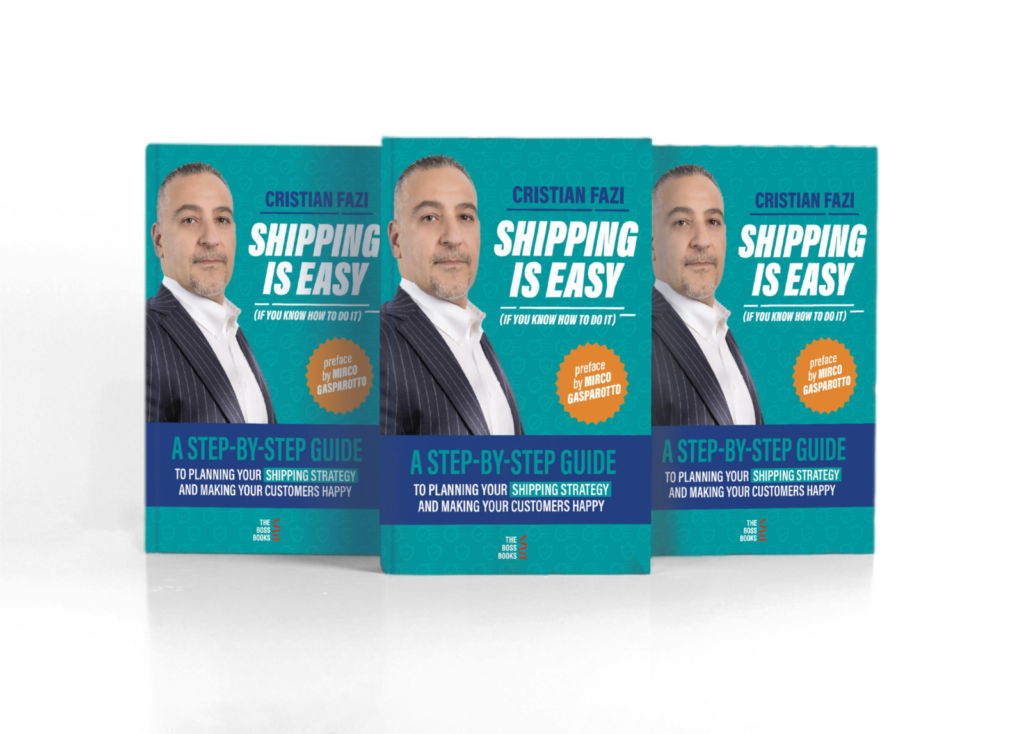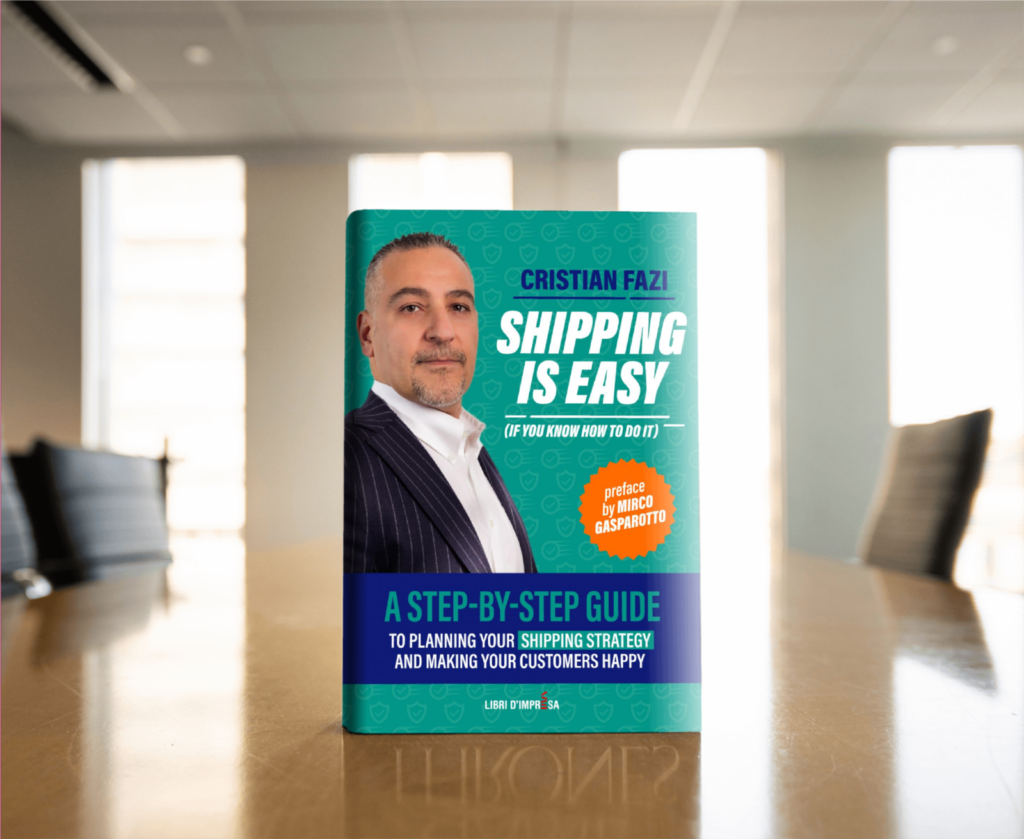Interview with Cristian Fazi
“The way your goods are delivered is the image of your company”.
Cristian Fazi, who has been involved in the shipping industry all his life, is firmly convinced of it. This belief has led him to write a whole book on an issue that is all too often taken for granted by many entrepreneurs.
THE BOSS BOOKS (BB): What made you decide to write a book?
CRISTIAN FAZI (CF): I have always been involved in shipping, ever since I was a child and my father took me on his long trips all over Europe. I have experienced every single aspect of this business: delivering goods, organizing shipments, facing difficult situations and solving problems. And I have built my business on all the knowledge and experience I’ve accumulated over the years. After meeting many people who have had major problems because of a failed shipment, I’ve decided to share what I have learned over the past 40 years. I have written a book that provides valuable information that can be useful to any professional who can’t afford to make a mistake.
(BB): Who did you write it for?
(CF): For anybody who is in charge of logistics or purchasing in a company of any size, from major multinational corporations to small family-run businesses – and for entrepreneurs as well. I have written this book for anybody who wants to organize their shipping strategy in an efficient and professional manner. The fact is that nowadays shipping requires expertise. You need to know the various kinds of shipment available as well as the pros and cons of each option, in order to choose the best solution for each specific shipment. This is because there isn’t a single solution that suits all types of situation. The key to an effective shipping strategy lies precisely in this – understanding the situation and implementing the most suitable option.
(BB): What are the risks, if you don’t have a shipping strategy?
(CF): You risk jeopardizing your image, as well as the image of your company. Over more than 40 years of activity in this industry, I have seen too many companies lose everything because of shipping problems. On the other hand, I have also seen companies that have based their reputation on their successful shipping strategy.

(BB): What will readers learn from reading your book?
(CF): They will learn how to turn their shipments into the flagship of their brand, by creating a transport strategy that can give real added value to their products. They will find out how to save money when delivering goods to destinations that are hard to reach, what types of insurance are suitable for safeguarding their goods during transportation, what regulations they absolutely have to be familiar with. Most importantly, they will understand how to choose the partner that is most suitable for their requirements.
(BB): Which requirements do you focus on, specifically?
(CF): Every company has a series of requirements to satisfy when it comes to transportation. Maybe they need to deliver their products at a specific time, when there is somebody who can receive the goods; or they have to prioritize safety, because they need to be certain that their loads reach their destination intact. Some companies focus on saving money or on polluting as little as possible; others handle urgent deliveries and need to meet specific deadlines. Other possible requirements are the need to deliver goods to hard-to-reach destinations or on critical days (weekends, holidays, days with a very high volume of traffic, etc.); or the need to ship particularly bulky items or perishable goods, like medicines or frozen food. Some companies have to ship their goods abroad, sometimes urgently, to countries with different traditions, regulations and unwritten rules. As you can see, there are many different scenarios, and for each of them there are appropriate solutions.

The Author: Cristian Fazi
After a long experience in his family’s transport company and two years as the head of the commercial department and the traffic division of a carriers’ consortium in Rome, in 2016 Cristian Fazi decided to start his own business. His entrepreneurial adventure started with Logistics 4 You, a company specialized in urgent shipments with express vans for customized deliveries. In 2017 Cristian Fazi was appointed Director of Customized Express Deliveries. Thanks to its quality services and highly professional staff, over the past four years Logistics 4 You has become a point of reference for many customers in Italy and abroad and its turnover has increased by 340%. With over 1,500 latest-generation, low-emission vans, nowadays Logistics 4 You has a 99.92% customer satisfaction rate. Its customer service staff speak ten languages and provide support 24 hours a day, 7 days a week. Logistics 4 You offers services ranging from the shipment of a single package by air to the urgent shipment of up to 1,000 kilograms of goods with express vans for customized delivery. It also has full-size trucks for the shipment of goods along the main European routes.








